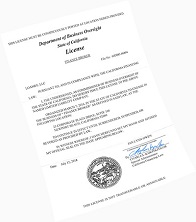Getting Your Move On
Moving is expensive. The American Moving and Storage Association states that the average cost of an out-of-state move is about $4,300 and the average cost of an intrastate move is about $2,300. Even if you have the time, energy, and strength to handle the move yourself, you’ll still need to buy moving supplies and probably need to rent a truck – not to mention buying pizza for everyone who agrees to help.
Then, of course, there are all of the miscellaneous expenses of moving into and setting up your new home. The meals while you unpack and organize. The dozens of items you didn’t realize you’d need or which don’t fit your new home and have to be replaced. Maybe even a broken item or two. Even when moving is a good thing, the process itself can be stressful and quickly empty your wallet or purse. That’s where a personal loan for moving comes in.
You could put everything on your high-interest credit card, of course, or use your savings to help offset unexpected expenses along the way. But every charge you make using plastic costs you far more than the purchase amount because of the way credit card companies structure monthly minimum payments. You could be paying for that pizza for years without actually reducing your balance substantially unless you develop an aggressive plan for reducing your credit card debt. And while it’s great to have savings, moving is expensive enough already.
You don’t want to start your new life without anything left as a cushion or safety net when you could take out a small personal moving loan instead and repay it on far better terms than most credit cards and without emptying your savings.
A moving loan won’t guarantee your brother-in-law doesn’t scratch your favorite coffee table, but it can help reduce the stress by giving you flexible resources and a manageable repayment plan. The right loan for moving takes some of the chaos out of transplanting your life by bringing order to one of its most challenging elements – the financial unpredictability. As a personal term loan, you’ll know exactly how much you have to spend and precisely when and how you’ll need to begin repayment. Interest rates are traditionally locked in for this sort of loan and the terms laid out clearly before you commit, so you’ll know before you sign exactly when you’ll be paid in full and what you’ll have paid along the way. No surprises, no gotchas, no headaches or hassles – unlike, say… actually moving.














